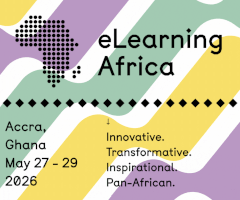Big Data Knows Why You're Failing Biology
Berlin (GER), November 2013 - Taking their cues from sites like Amazon and Google, universities are now utilising big data to provide students with recommended courses and majors. But after recent revelations involving government snooping, how can we trust educational institutions and service providers to use large amounts of data ethically?
According to Dr. Viktor Mayer-Schönberger, Professor of Internet Governance and Regulation at the Oxford Internet Institute and keynote speaker at ONLINE EDUCA BERLIN 2013, "the danger is less 1984 than Minority Report". In the Spielberg film, based on a short story by sci-fi writer Philip K. Dick, data is collected and used by the state to predict behaviour and sentence citizens for crimes they have not yet committed.
Although the comparison with science fiction may seem far-fetched, Mayer-Schönberger sees the use of data to predict our choices and track our preferences as a greater threat to society than any other encroachment on privacy big data may already represent: using data to predict educational outcomes could discourage students from taking risks or put them off undertaking further education or training all together. "We urgently need to put safeguards in place to protect free will," says Mayer-Schöneberg.
Big data in education is just one of the many themes that will be examined by international expert speakers at ONLINE EDUCA BERLIN 2013, the largest global e-learning conference for the corporate, education and public service sectors, which is set to take place in Berlin, 4 - 6 December, 2013.
18 keynote speakers have been confirmed to date. Among them are José Manuel Barroso, President of the European Commission; Jeanne Meister, author of The 2020 Workplace and expert on innovation in workplace learning; Prof Mitchell L. Stevens of Stanford University, who will discuss "Education without States"; and Crispin Weston, an ed-tech consultant and blogger with a passionate belief in the potential of education technology and a dislike of prohibitive and prescriptive bureaucracy.
Other keynotes include Jan Truszczynski, Director General for Education, Training, Culture and Youth at the European Commission, and Dr Jeff Borden, professor, educational consultant and VP of Instruction and Academic Strategy at Pearson.
Encompassing many diverse fields within education and training, their provocative and thought-provoking presentations will fuel the Conference's famously spirited, uninhibited and far-reaching discussions.
ONLINE EDUCA BERLIN will also feature 16 pre-conference events, over 100 parallel sessions and an abundance of networking opportunities, as well as an extensive exhibition area featuring over 90 international exhibitors.









